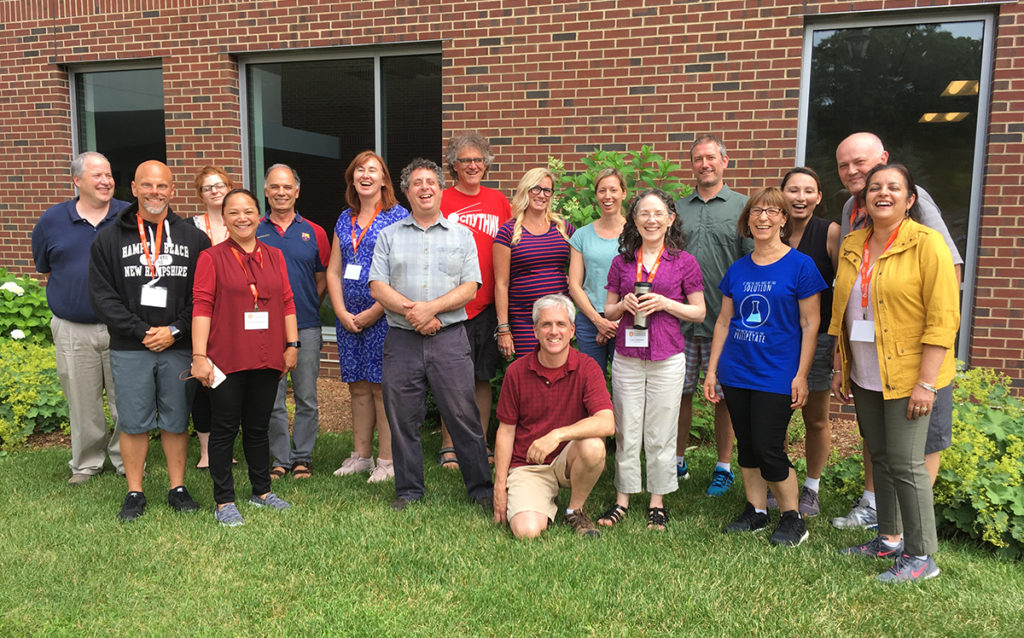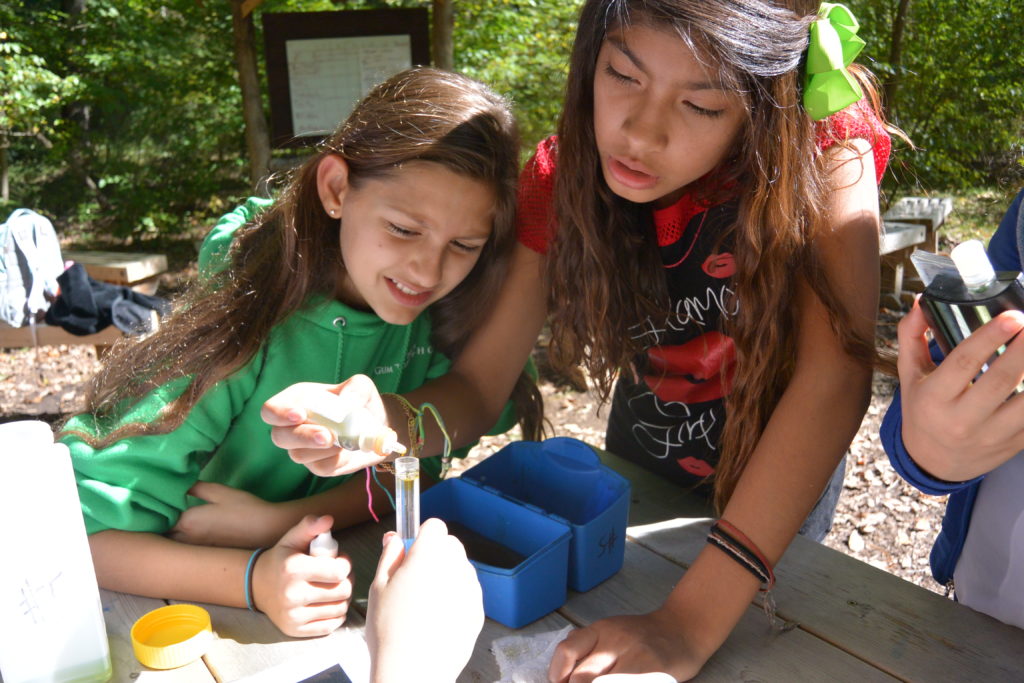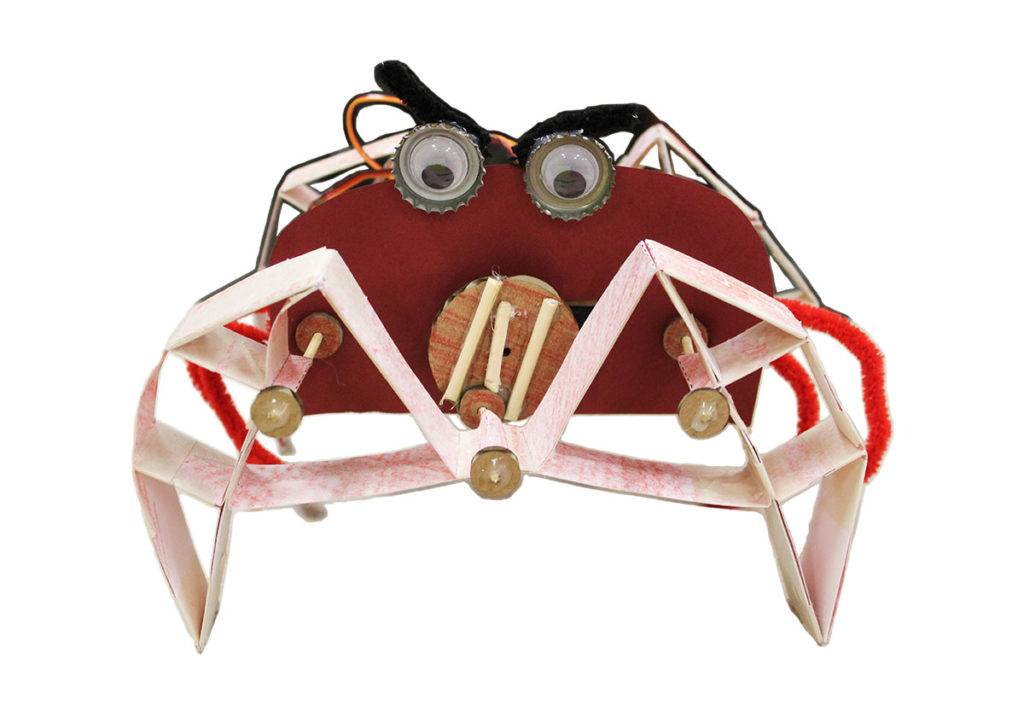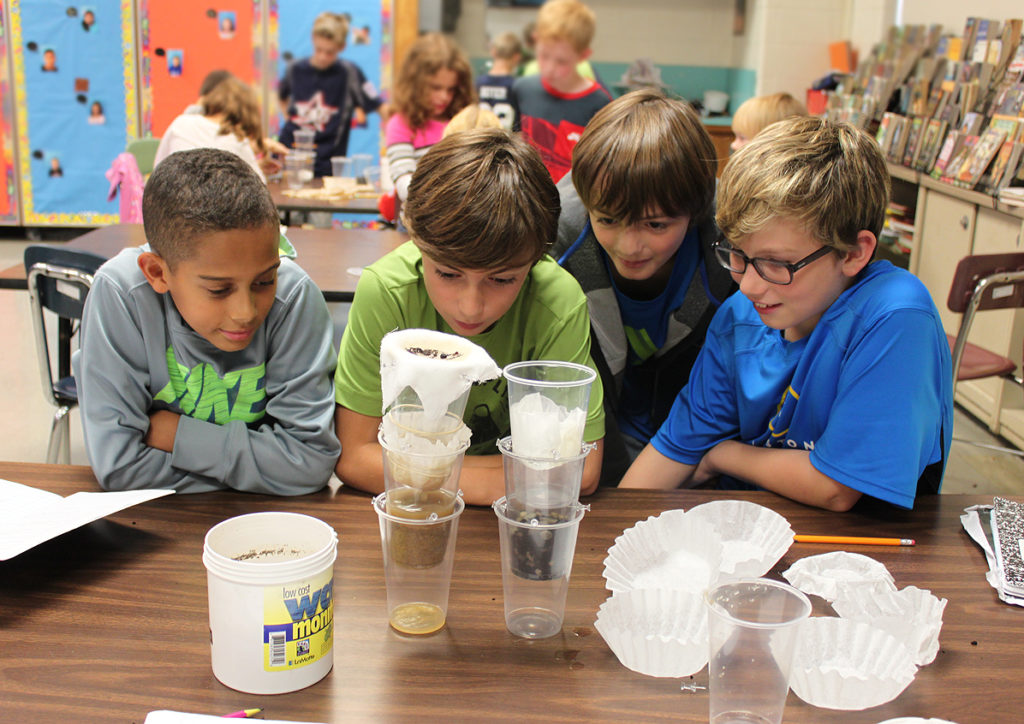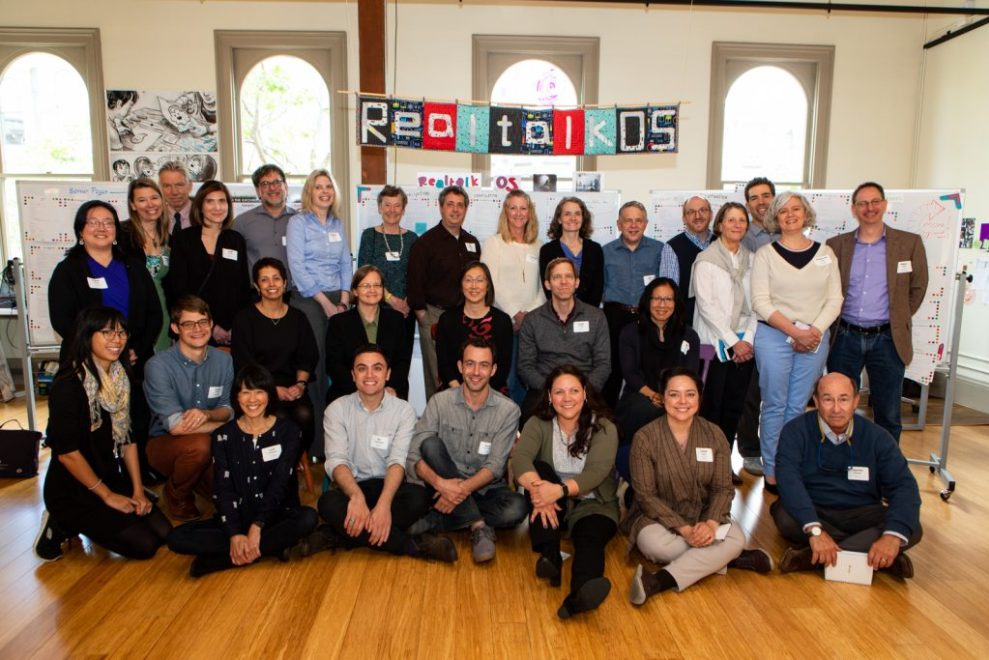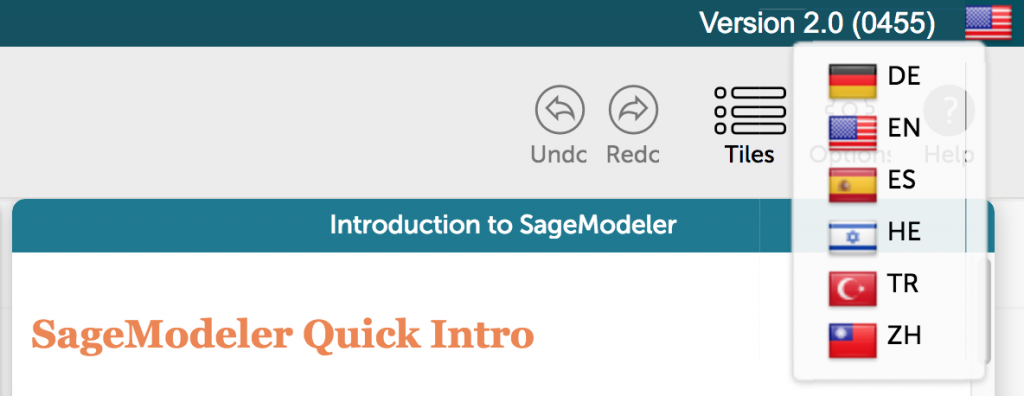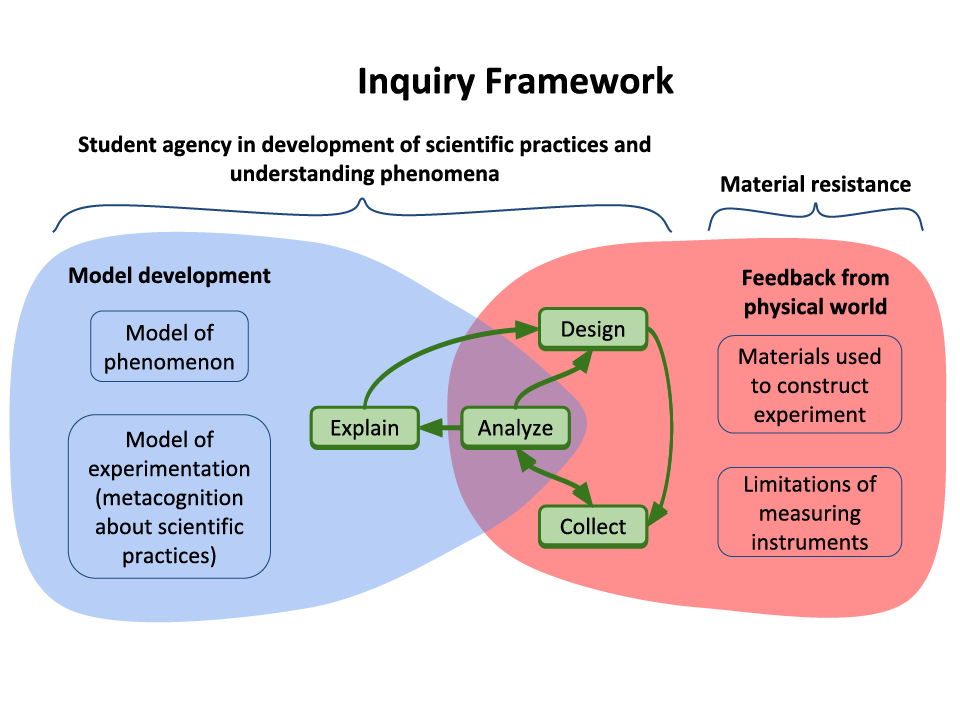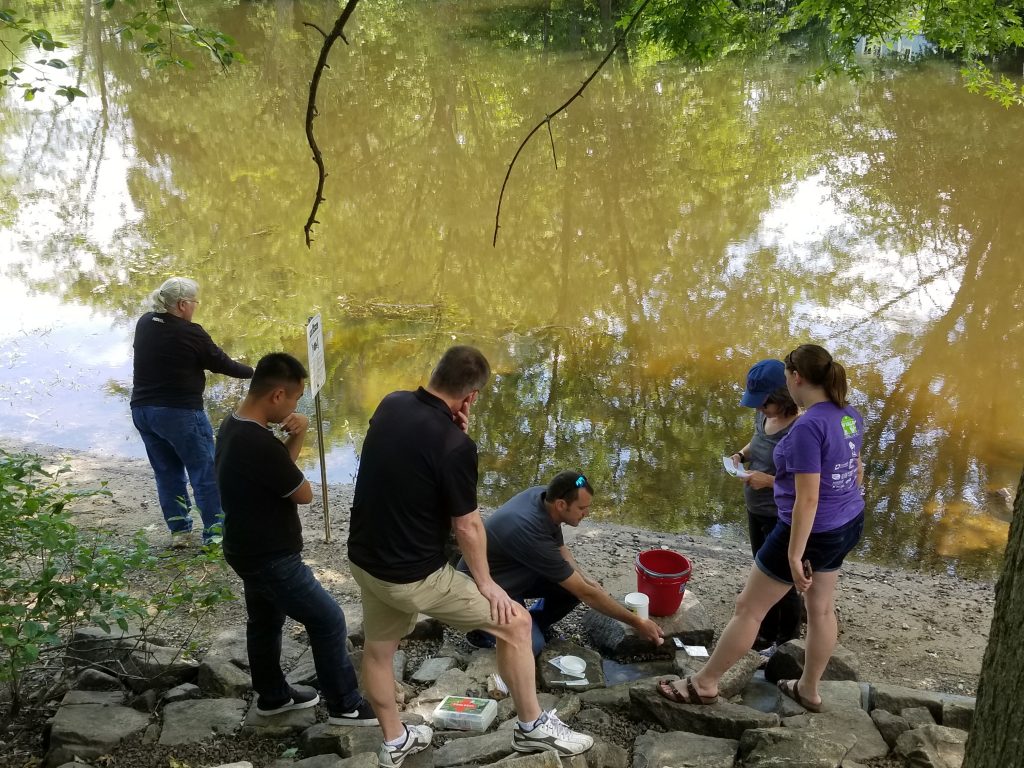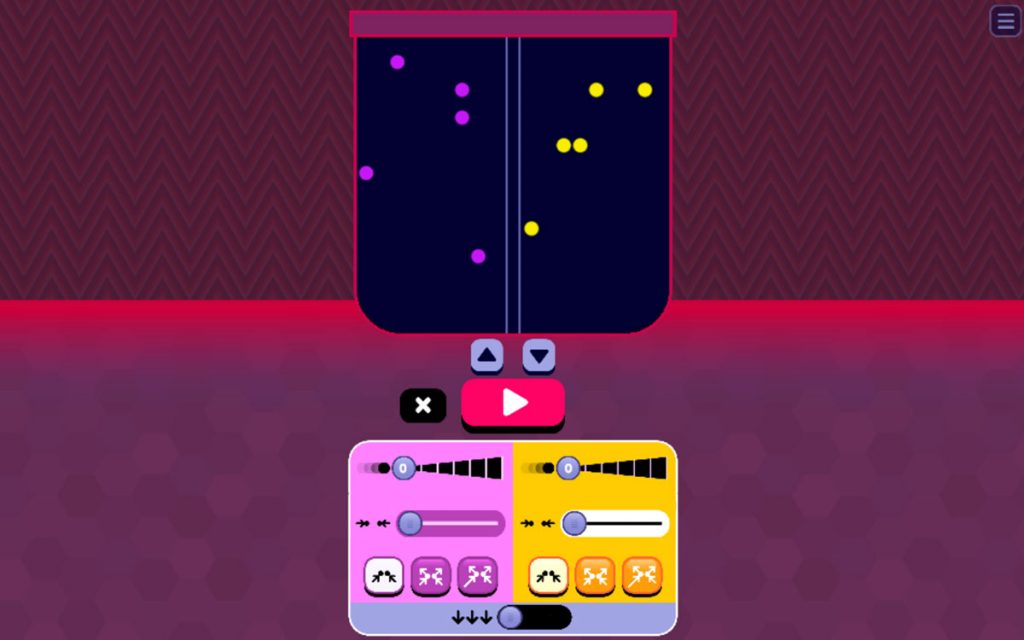Category: Tools for Inquiry
What do teachers do over the summer? Plan for the next school year, of course! Thirteen enthusiastic teachers from seven different school districts and four states (MA, ME, RI, and CA) spent four days conducting experiments in physics, chemistry, and biology, preparing to bring new technology, curriculum, and pedagogies back to their classrooms. Biology and […]
Across the country, every minute of every day, water glasses are filled from a tap, toilets are flushed, laundry is washed, and bathtubs are filled. Where does this water come from? Where does it go? Who helps to ensure this water is safe? A new project funded by the National Science Foundation’s ITEST (Innovative Technology […]
From its beginning, we at the Concord Consortium have advocated for the notion that young people can produce high-quality, meaningful data to answer real questions. More than 20 years ago, Concord Consortium founder Robert Tinker sketched a compelling vision for authentic science in schools and communities, making the case that anyone can be a scientist. […]
In 2018, we made an impact with 11 articles published in researcher and teacher practitioner journals that showcase the state of the field in STEM educational technology. Learn how automated scoring during formative assessment can diagnose and enhance students’ argumentation skills (#4), how modeling and simulation on a CAD platform can be used to teach […]
2018 was a banner year for the Concord Consortium and we’re thrilled to present the year in review with our top 10 news stories. We Launched Designing 2030 to Transform the Future of STEM Teaching and Learning. Our new Designing 2030 initiative will transform STEM teaching and learning to reach more students with educational technology.
An article in the October 2018 issue of Science and Children looks at groundwater and the natural processes of infiltration as a vital means for cleaning our water. Co-authored by Jonathon Kilpatrick (Greenwood Elementary School in Pennsylvania), Nanette Marcum-Dietrich and John Wallace (both of Millersville University of Pennsylvania), and Concord Consortium Senior Scientist Carolyn Staudt, […]
As our senior software engineer Kirk Swenson said in a recent @Concord article, the Concord Consortium is all about impact: getting more students in more places doing STEM inquiry. Since only about 5% of the Earth’s population speaks English as a first language, it makes sense to reach beyond English to make our free resources […]
How do students learn to think like scientists so they can uncover the natural world’s secrets? Scientific experimentation allows students to discover some of nature’s secrets. However, it is not simply about collecting data through the use of various apparatus, whether it’s a conventional microscope or advanced computer technologies. Scientific experimentation requires students to engage […]
Everyone lives in a watershed, regardless of whether you reside where it’s hot and dry or wet and rainy. As the U.S. Geological Survey says, if you’re standing on land, look down, you’re in a watershed. The 23 teachers, staff developers, and center directors who met this summer at the Concord Consortium offices in Massachusetts […]
Can children as young as kindergarten understand what makes a solid become a liquid, or a gas? Can they comprehend the dynamics of particle motion? Our Sensing Science through Modeling Matter project believes they can, with the help of playful, animated stories and an online app that is now available in the App Store. Sensing […]
